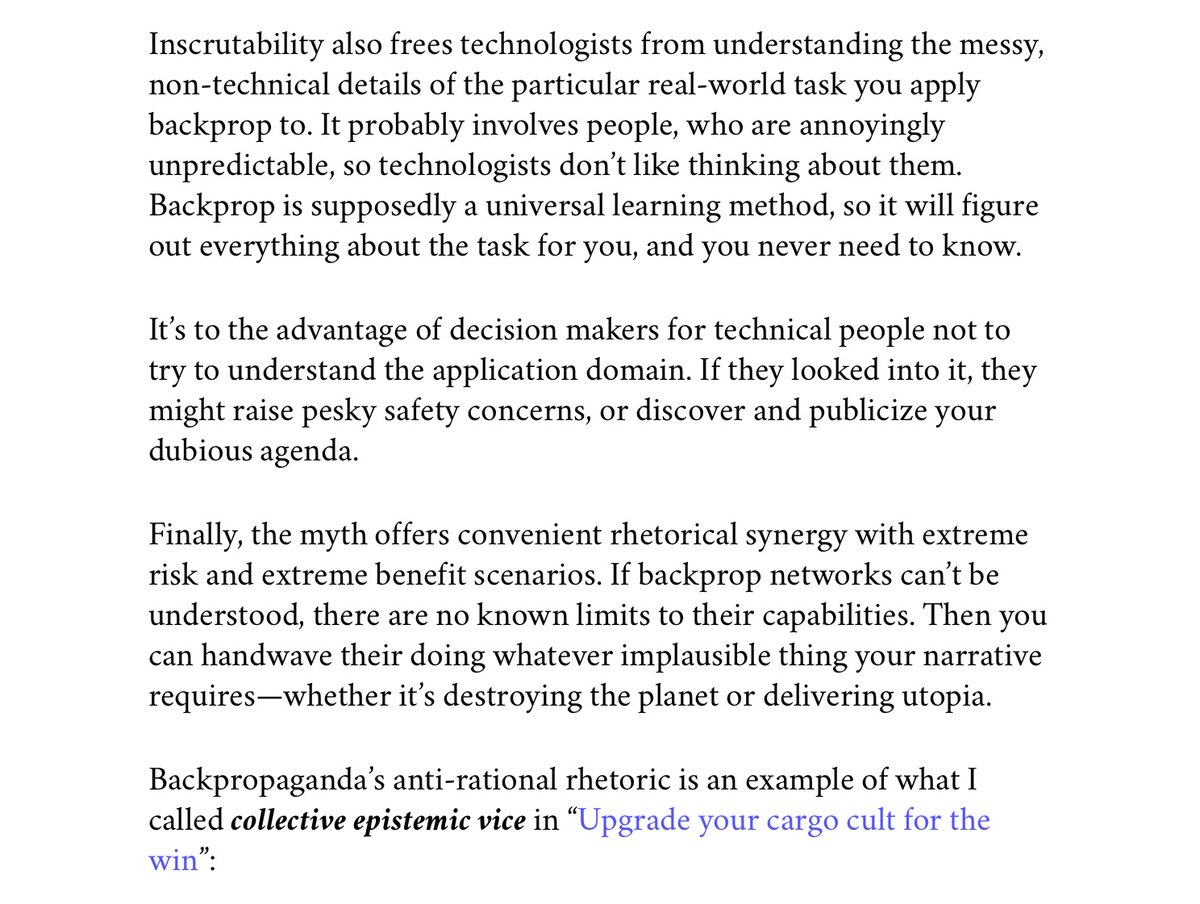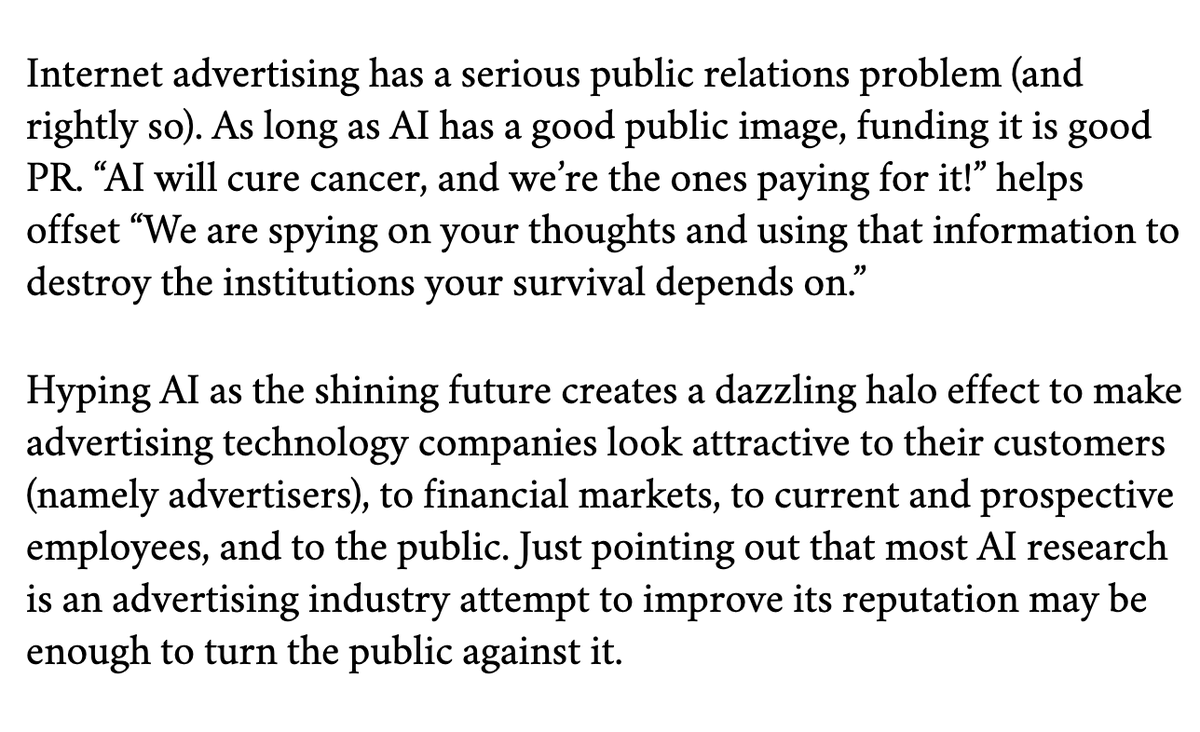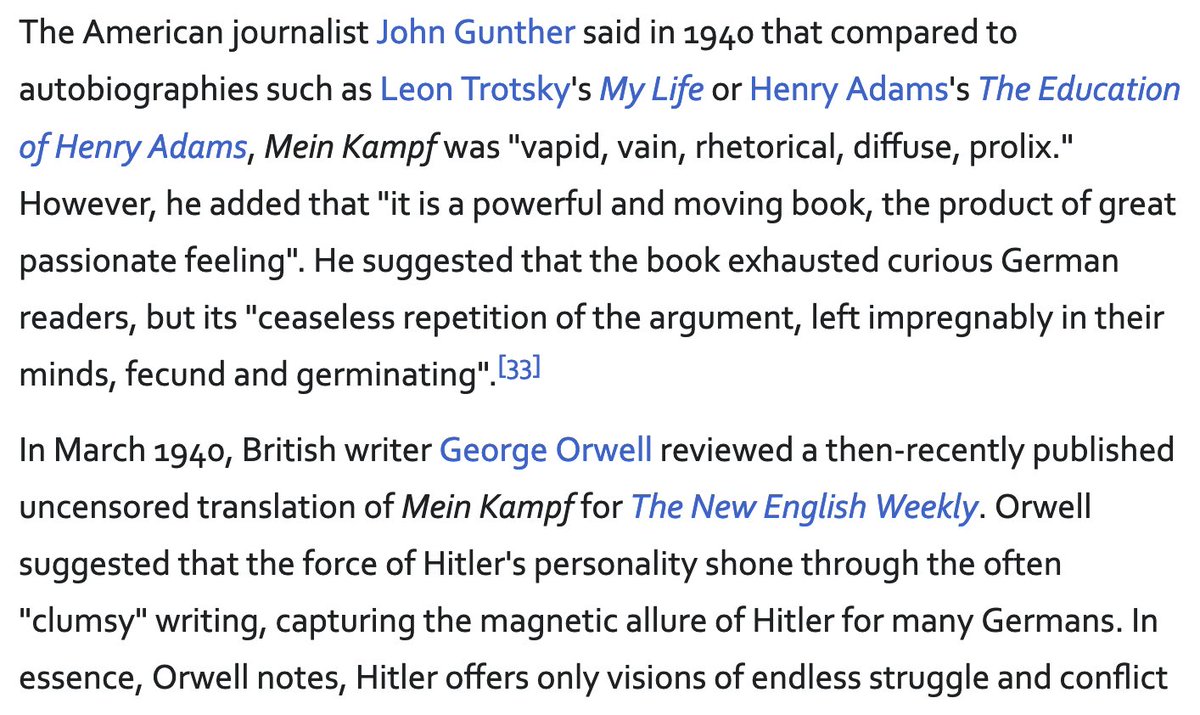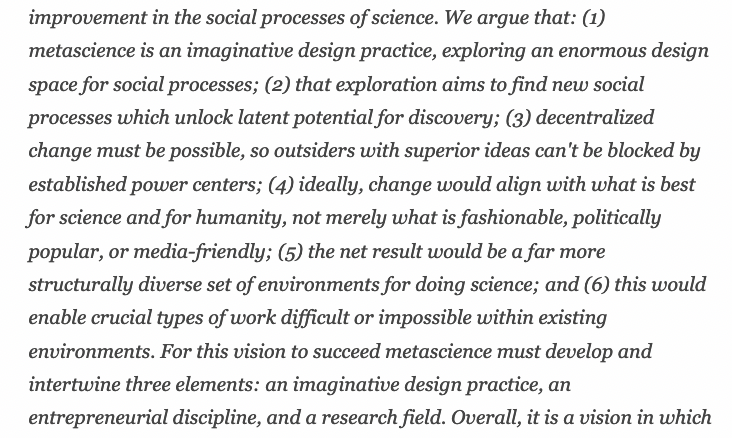
Better ways of thinking, feeling, and acting—around problems of meaning and meaninglessness; self and society; ethics, purpose, and value.
14 subscribers
How to get URL link on X (Twitter) App


 Schank was a very weird dude. Phil was also a very weird dude.
Schank was a very weird dude. Phil was also a very weird dude.


https://twitter.com/jessi_cata/status/1639647141600665600?s=20Incisive thinking about transness, also from @jessi_cata. "Trans" is a iron maiden category constructed by cis authorities which, for many people trying to fit into it, is grossly false to facts and harmful, painful, sometimes fatal. unstableontology.com/2023/02/07/am-…



 Engineers have a moral responsibility to know what the things they build can do and how and when and why. Companies selling products to the general public, and government agencies using them, have the same responsibility. Backpropaganda helpfully obfuscates that.
Engineers have a moral responsibility to know what the things they build can do and how and when and why. Companies selling products to the general public, and government agencies using them, have the same responsibility. Backpropaganda helpfully obfuscates that. 




 If you go to their site, they position themselves as legit, but are using classic low-end spamming techniques to advertise themselves; they used a botnet to post the identical message from many different IPs within four seconds.
If you go to their site, they position themselves as legit, but are using classic low-end spamming techniques to advertise themselves; they used a botnet to post the identical message from many different IPs within four seconds.




https://twitter.com/DRMacIver/status/1599374230725926912@DRMacIver All ethical systems are wrong because they are abstract, general, theoretical, and conceptual;
https://twitter.com/DRMacIver/status/1599374243866718208

 📧 My free email newsletter. I'll use it to explain where I've gone and what I'm doing, if twitter implodes. Otherwise, very low volume: mainly just notifying readers of new writing. tinyletter.com/meaningness
📧 My free email newsletter. I'll use it to explain where I've gone and what I'm doing, if twitter implodes. Otherwise, very low volume: mainly just notifying readers of new writing. tinyletter.com/meaningness

https://twitter.com/michael_nielsen/status/1582489651603861504🧬 What science we get depends on how “we” do it—where “we” is not so much scientists as bureaucrats. The way “we” do science was invented 70 years ago for a different world, has sclerosed, and now inhibits progress.


 Scott contrasts his analysis with my Geeks, MOPs, and Sociopaths model (which I mostly stole from @vgr). He doesn’t see the sociopaths. The comment section on his essay includes many people pointing to sociopathic destruction of various subcultures—crypto is a common example.
Scott contrasts his analysis with my Geeks, MOPs, and Sociopaths model (which I mostly stole from @vgr). He doesn’t see the sociopaths. The comment section on his essay includes many people pointing to sociopathic destruction of various subcultures—crypto is a common example.



https://twitter.com/christlet/status/1551586043656380417PubPeer tries to make actual-peer-review transparent and public, and it helps on the margin, but the inherent problem is that you don’t want your negative opinions about someone’s work getting back to them, lest they retaliate.


 Carlos Castaneda’s early books are an account of his apprenticeship with an extraordinary teacher, the Yaqui sorceror don Juan Matus. The magic and mysticism are just set-dressing; their difficult, intense relationship is the real topic and what makes the books compelling.
Carlos Castaneda’s early books are an account of his apprenticeship with an extraordinary teacher, the Yaqui sorceror don Juan Matus. The magic and mysticism are just set-dressing; their difficult, intense relationship is the real topic and what makes the books compelling. 

 Chomsky’s opening move was to take all empirical evidence off the table by declaring that anything people actually say is irrelevant to linguistics, because the mental machinery is error-prone. Underlying it is a pristine rational process we should understand instead.
Chomsky’s opening move was to take all empirical evidence off the table by declaring that anything people actually say is irrelevant to linguistics, because the mental machinery is error-prone. Underlying it is a pristine rational process we should understand instead. 

 Last year, Jeff found a paper copy of the code (with the help of an MIT archivist) and got it running (with the help of a team of hackers) and found it was much more sophisticated than the one you know (which Jeff wrote when he was 13)...
Last year, Jeff found a paper copy of the code (with the help of an MIT archivist) and got it running (with the help of a team of hackers) and found it was much more sophisticated than the one you know (which Jeff wrote when he was 13)... 